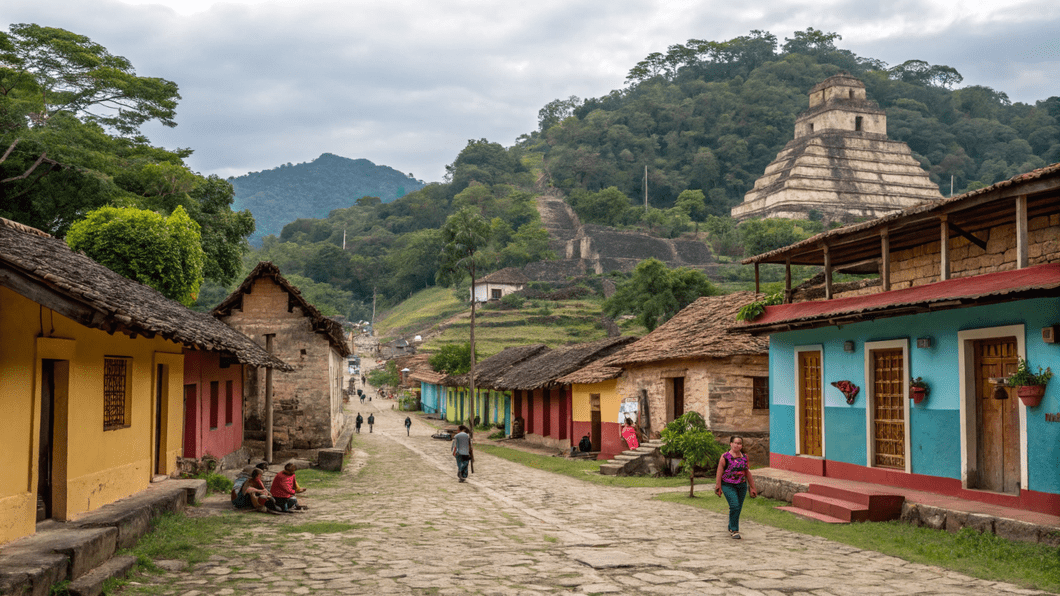The phrase “Premakante Family Ki Viluva Iche Vadu” is a powerful concept in Telugu, roughly translating to “One who gives more value to family than love.” It represents a philosophy that prioritizes family values, respect, and responsibility over individual desires, including romantic love. This idea is deeply rooted in South Asian traditions but has relevance and application worldwide.
Family is the foundation of emotional stability, support, and success, and this concept stresses that focusing on strong familial ties is essential for personal well-being and collective growth.
The Cultural Roots of Premakante Family Ki Viluva Iche Vadu
Family in South Asian Societies
In South Asian cultures, the family has always been central. Whether in India, Pakistan, Bangladesh, or Sri Lanka, family connections extend beyond the nuclear unit to include grandparents, aunts, uncles, and cousins. The family is not just about blood relations, but it also represents a network of emotional and social support that transcends generations.
Historical Background: The Concept of Joint Family
Traditionally, families in South Asia live together in joint family systems, where multiple generations share the same household. This structure promotes collective responsibility, where every family member plays a role in nurturing and supporting each other. The idea of Premakante Family Ki Viluva Iche Vadu is a reflection of these age-old traditions, where family is seen as the most significant social unit, and its well-being is prioritized above all else.
How These Traditions Shaped the Concept
The emphasis on family values in South Asian societies is what gives rise to the philosophy of Premakante Family Ki Viluva Iche Vadu. The concept stresses that true happiness comes not from pursuing personal or romantic desires, but from fostering strong relationships with one’s family members. This idea has resonated for centuries and continues to influence family dynamics in both traditional and modern societies.
Core Principles of Premakante Family Ki Viluva Iche Vadu
To fully appreciate the value of Premakante Family Ki Viluva Iche Vadu, it is essential to understand its foundational principles. These core beliefs emphasize family unity, mutual respect, and unwavering support.
1. Unconditional Love
One of the primary principles of Premakante Family Ki Viluva Iche Vadu is the importance of unconditional love within the family. Unlike romantic love, which can sometimes be conditional, family love is meant to be constant. Regardless of individual flaws or disagreements, family members should love and support one another.
How Unconditional Love Strengthens Family Bonds
Unconditional love fosters a sense of security and belonging within the family. It allows family members to trust each other, knowing that they will be supported in both good times and bad. This kind of love strengthens family ties and builds a foundation of resilience.
2. Respect for Elders
In South Asian cultures, respecting elders is a deeply ingrained value. Elders are viewed as the keepers of wisdom, life experience, and family traditions. Premakante Family Ki Viluva Iche Vadu emphasizes the importance of reverence for one’s elders, both in terms of listening to their guidance and ensuring their well-being.
The Role of Elders in Preserving Family Unity
Elders often play a crucial role in family decision-making. Their wisdom and life experiences help guide younger generations, and respecting their opinions fosters intergenerational harmony. Taking care of aging family members is seen as not only a duty but an honor.
3. Mutual Support and Responsibility
Families thrive when all members actively participate in supporting one another. This principle of Premakante Family Ki Viluva Iche Vadu underscores the importance of mutual responsibility. Everyone, from the youngest to the oldest, has a role to play in ensuring the family’s success and happiness.
Creating a Balanced Family Environment
When family members share responsibilities, such as caring for children, contributing financially, or supporting one another emotionally, the family becomes more resilient. This balance creates a supportive environment where everyone feels valued and involved.
The Importance of Premakante Family Ki Viluva Iche Vadu in Today’s Society
Family in the 21st Century: Why It Still Matters
In today’s rapidly changing world, the traditional concept of family may seem outdated to some. With globalization, modern work cultures, and technological advancements, family structures are evolving, particularly in the USA. However, the fundamental values that make families strong remain relevant.
Individualism vs. Collectivism
Western societies, particularly in the USA, often prioritize individualism. This focus on personal achievement, independence, and self-fulfillment can sometimes lead to weakening family bonds. However, Premakante Family Ki Viluva Iche Vadu advocates for a more collective approach, where the success of the individual is closely tied to the well-being of the family.
Balancing Personal Ambitions with Family Responsibility
The challenge in modern society is to find a balance between personal ambitions and family responsibilities. While career success and personal goals are important, Premakante Family Ki Viluva Iche Vadu reminds us that family should not be neglected. A healthy balance ensures that individuals do not lose sight of what truly matters: strong, lasting family relationships.
Adapting Premakante Family Ki Viluva Iche Vadu to the American Lifestyle
Challenges of Family Life in the USA
Families in the USA often face unique challenges, including geographical distance, time constraints, and a culture that encourages independence over collective living. However, the values embodied by Premakante Family Ki Viluva Iche Vadu can still be successfully applied to American families.
Practical Ways to Apply This Philosophy in the USA
- Prioritize Family Time: In the fast-paced American lifestyle, it is essential to carve out time for family. Regular family gatherings, meals, and activities help build strong connections.
- Respect Individuality While Promoting Unity: While individualism is a core part of American culture, it doesn’t have to come at the cost of family unity. Encouraging open communication and mutual respect helps balance individual desires with family needs.
Embracing Multigenerational Living
Although the concept of joint families is less common in the USA, more families are beginning to recognize the benefits of multigenerational living. Living with or near grandparents and other relatives can provide invaluable support, reduce childcare costs, and strengthen family ties.
How to Build Strong Family Bonds Using Premakante Family Ki Viluva Iche Vadu
Building a strong family takes time, effort, and intentionality. Here are several ways to apply the principles of Premakante Family Ki Viluva Iche Vadu in everyday family life.
1. Open Communication
Open, honest communication is vital for maintaining strong family relationships. Encourage every family member to share their thoughts and feelings openly.
Creating a Safe Space for Expression
A safe space for expression ensures that every family member feels heard and valued. Regular family meetings or one-on-one conversations can help foster this environment.
2. Spend Quality Time Together
Spending quality time together strengthens family bonds and fosters closeness. This doesn’t always mean grand outings or vacations; simple activities like cooking meals together, playing games, or watching a movie can make a big difference.
3. Practice Empathy and Understanding
Every family member should make an effort to understand the others’ perspectives. Practicing empathy reduces conflict and increases emotional intimacy within the family.
Active Listening and Conflict Resolution
When disagreements arise, active listening helps resolve conflicts peacefully. Family members should be willing to listen to each other’s concerns without judgment.
4. Cultivate Shared Values and Traditions
Shared values and traditions bind families together. Whether it’s celebrating holidays together, engaging in cultural practices, or creating new family traditions, these rituals create a sense of identity and belonging.
The Role of Parents in Promoting Family Values
Leading by Example
Parents play a crucial role in passing down family values. By demonstrating love, respect, and responsibility, parents teach their children the importance of family unity.
Creating a Positive Family Culture
A positive family culture is one where every member feels supported and valued. Parents can cultivate this culture by promoting kindness, inclusivity, and responsibility within the household.
Encouraging Family Involvement
Parents should encourage their children to take an active role in family life. Whether it’s helping with chores, supporting siblings, or participating in family discussions, involvement fosters a sense of responsibility and belonging.
Premakante Family Ki Viluva Iche Vadu and Child Development
How Family Values Shape a Child’s Future
Children who grow up in families that prioritize values like unconditional love, mutual respect, and responsibility are more likely to develop into well-rounded, emotionally stable adults.
The Importance of Emotional Security
When children feel secure in their family relationships, they are more confident and resilient in other areas of life. Premakante Family Ki Viluva Iche Vadu provides the emotional foundation children need to thrive.
Strengthening Marriages through Family-Centric Values
The Role of Spousal Support
In a marriage, mutual support and understanding are key to a strong partnership. Premakante Family Ki Viluva Iche Vadu emphasizes the importance of prioritizing family over personal interests, which includes supporting one’s spouse emotionally and practically.
Creating a Unified Vision for the Future
Couples who share a unified vision for their family are more likely to have successful marriages. By prioritizing family goals, such as raising children with strong values or building a secure home environment, couples can strengthen their relationship.
FAQs: Understanding Premakante Family Ki Viluva Iche Vadu
1. What does “Premakante Family Ki Viluva Iche Vadu” mean?
This phrase means “the one who gives more value to family than love,” emphasizing the importance of family over personal romantic relationships.
2. How can I apply this philosophy in my family life?
You can apply this philosophy by prioritizing family time, encouraging open communication, respecting elders, and practicing mutual support and responsibility.
3. How does this philosophy fit into modern American family life?
Although it originates from South Asian traditions, the principles of Premakante Family Ki Viluva Iche Vadu can be adapted to modern American life by finding a balance between individualism and family unity.
4. What are the benefits of prioritizing family over individual pursuits?
Prioritizing family leads to stronger relationships, emotional security, and a more supportive environment. It can also contribute to better mental and emotional well-being.
Conclusion: Why Family Should Always Come First
The concept of Premakante Family Ki Viluva Iche Vadu provides a valuable lesson in today’s fast-paced world. By prioritizing family over individual desires, individuals can build strong, resilient family units that provide support, love, and stability. Whether you live in the USA or anywhere else, the timeless values of unconditional love, respect, and responsibility continue to play a crucial role in creating happy, healthy families.










